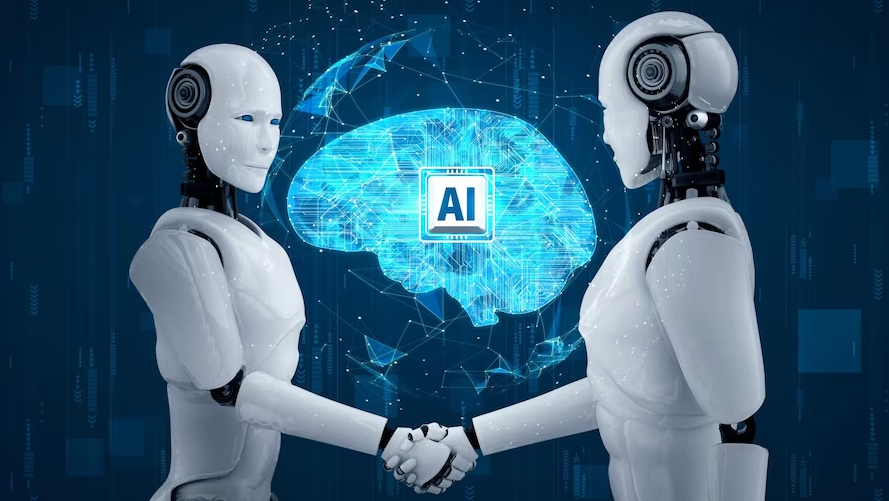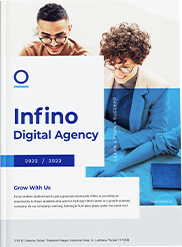
Artificial Intelligence is improving the digital marketing and tech industry, bringing unprecedented changes and opportunities for businesses. By utilizing AI-powered algorithms, marketers can gather and analyze vast amounts of data in real-time, providing insights into customer behavior, preferences, and trends. With this information, increase conversion rates, businesses can tailor their marketing strategies to better reach and engage their target audience, and ultimately drive revenue growth.
Creates Useful Content
The power of AI tools can create highly personalized and engaging content that resonates with customers. For example, AI can be used to generate headlines, product descriptions, and even entire articles that are optimized for specific audiences. In terms of imagery, AI-powered tools can create high-quality visuals and graphics in seconds, using algorithms to identify and adjust colors, composition, and other elements for maximum impact. AI can also be used in website design, analyzing user behavior to optimize layouts and improve navigation. Overall, the use of AI in content creation, imagery, website design, and graphics is transforming the way businesses approach digital marketing and helping them to create more compelling and effective marketing campaigns.
Customer Experience
One of the most significant results of AI on digital marketing is its ability to gather and analyze data. In the past, businesses relied on traditional methods of market research such as surveys and focus groups to gain insights into customer behavior. However, these methods were often time-consuming and costly, and the results were often limited in scope.
With AI, businesses can now collect vast amounts of data in real-time and use it to create more personalized marketing campaigns. For example, AI-powered tools can analyze customer behavior on a website or social media platform, identifying patterns and preferences that can be used to create targeted marketing messages. This not only makes marketing more effective but also helps to create a better customer experience, which can lead to increased loyalty and higher conversion rates.
Chatbots
Artificial Intelligence also changed the way businesses interact with the customers. Chatbots, for example, are becoming increasingly popular as a way to provide 24/7 customer support. These AI-powered tools can answer common questions, direct customers to the appropriate resources, and even provide personalized product recommendations based on the customer’s browsing history.
In addition to chatbots, AI is also being used to improve the customer journey by creating personalized experiences for each individual user. For example, AI-powered recommendation engines can suggest products or services based on a customer’s past purchases or browsing history. This not only makes the shopping experience more convenient but can also increase the likelihood of a sale.
Automate
Another significant impact of AI on digital marketing is its ability to automate repetitive tasks. For example, AI-powered tools can be used to create personalized email campaigns that are sent automatically based on a customer’s behavior. This saves the time as well as helps to make sure that the right message is being sent to the right person at the right time.
AI is also being used to improve the accuracy of marketing efforts. For example, AI-powered tools can analyze customer data to predict future behavior and create more effective marketing campaigns. This not only makes marketing more efficient but can also reduce the risk of wasted resources on campaigns that are unlikely to be successful.
Data Analyzing
Another way that AI is changing the digital marketing landscape is through its ability to analyze and interpret data. In the past, businesses had to rely on human analysts to interpret data and provide insights into customer behavior. However, AI-powered tools can now analyze massive amounts of data in a same time it would take a human analyst.
This not only makes marketing more efficient but also helps businesses to identify patterns and trends that may have gone unnoticed otherwise. For example, AI-powered tools can identify correlations between customer behavior and certain products or services, helping businesses to create more effective marketing campaigns and improve their overall sales performance.
Despite the many benefits of AI in digital marketing, there are also some potential drawbacks to consider. Because AI is only as unbiased as the data it is trained on, there is a risk that AI-powered tools may reinforce existing biases or stereotypes.
Another concern is the potential for AI to replace human workers in certain areas. While AI-powered tools can automate many repetitive tasks, there is still a need for human expertise in areas such as creative design and copywriting.
Conclusion
AI is having a great impact on the digital marketing industry, providing businesses with new ways to collect and analyze data, automate tasks, and improve the overall customer experience. While there are certainly some potential drawbacks to consider, the benefits of AI in digital marketing are clear, and businesses that embrace this technology are likely to enjoy a competitive advantage in the years to come.







 Download Our Brochure
Download Our Brochure